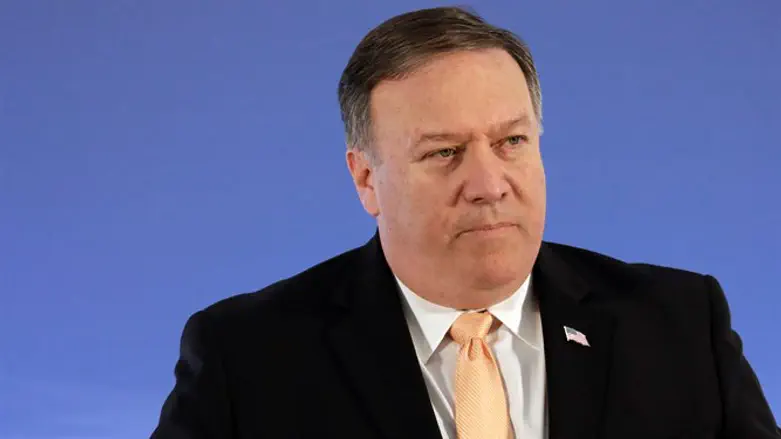
US Secretary of State Mike Pompeo on Wednesday urged the United Nations to tighten restrictions on Iran's missiles, but other powers called instead for dialogue, AFP reported.
Pompeo headed to New York for a Security Council meeting on Iran, which recently confirmed a medium-range ballistic missile test, arguing it is legal and necessary for its defense.
"We risk the security of our people if Iran continues stocking up on ballistic missiles," Pompeo told the Security Council.
"We risk escalation of conflict in the region if we fail to restore deterrence. And we convey to all other malign actors that they too can defy the Security Council with impunity if we do nothing," he warned.
Iran has "hundreds of missiles which pose a threat to our partners in the region," Pompeo said, referring to Israel and Arab allies such as Saudi Arabia.
Pompeo said the United States would press to preserve a UN arms embargo on Iran due to expire in 2020 and urge the Security Council to set up inspections at sea to prevent weapons shipments.
He also called for the return of a firmer prohibition on Iran developing missiles capable of delivering nuclear weapons, toughening language from the Security Council resolution that supported the nuclear deal.
Pompeo said last week that Tehran had tested a new missile capable of carrying multiple warheads in violation of the 2015 nuclear agreement it signed with the West.
A day later, Iran made clear that it would continue its missile tests to build up its defenses and once again denied this was in breach of UN resolutions.
On Tuesday, a senior Iranian commander confirmed the country had carried out a recent missile test, saying it “was a significant test” and adding, “The US reaction showed that it was a big thing for them and that it upset them.”
When US President Donald Trump left the 2015 nuclear deal last May, he cited the agreement’s failure to deal with Iran’s ballistic missile program as one of the reasons for withdrawing.
The US says that Iran’s ballistic missile tests violate UN Security Council resolution 2231, which enshrined Iran’s 2015 nuclear deal with Britain, China, France, Germany, Russia and the United States.
The resolution says Iran is “called upon” to refrain for up to eight years from work on ballistic missiles designed to deliver nuclear weapons.
Iran, however, denies its ballistic missile tests violate this resolution. President Hassan Rouhani has stressed that Iran will continue to produce missiles for its defense and does not consider that a violation of international agreements.
Iran’s UN envoy Eshagh Al Habib responded to Pompeo, saying the top US diplomat was casting Iran as a threat to sell more "beautiful weapons," sarcastically quoting Trump's rationale for backing Saudi Arabia.
He said Iran's missiles were not nuclear in nature and defended the need for strong defense, noting that Western powers backed Saddam Hussein as his warplanes destroyed Iranian cities in the 1980-88 Iran-Iraq war.
Russian Ambassador Vassily Nebenzia also made a veiled but clear swipe at Pompeo as he denounced attempts to "fan anti-Iranian hysteria", according to AFP.
"There is no proof that the ballistic missiles can carry a nuclear load," Nebenzia told the council, adding that Iran "is ready for dialogue."
France, while saying it shared US goals on Iran, pleaded for the preservation of the nuclear accord, saying it was verifiably working in freezing Iran's nuclear program.
France’s Foreign Ministry had expressed concern over Iran’s last missile test, saying it was a provocative and destabilizing act.
